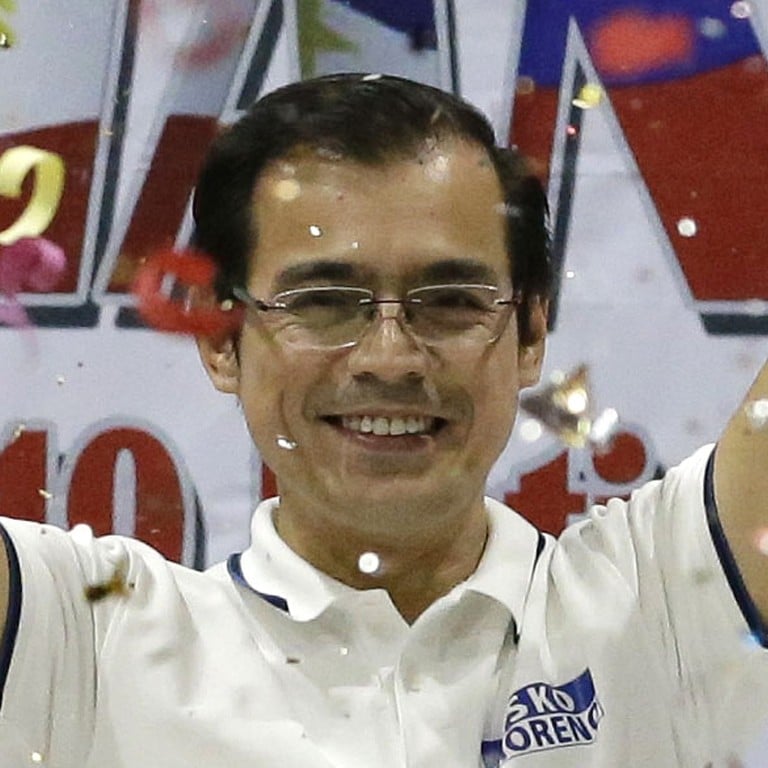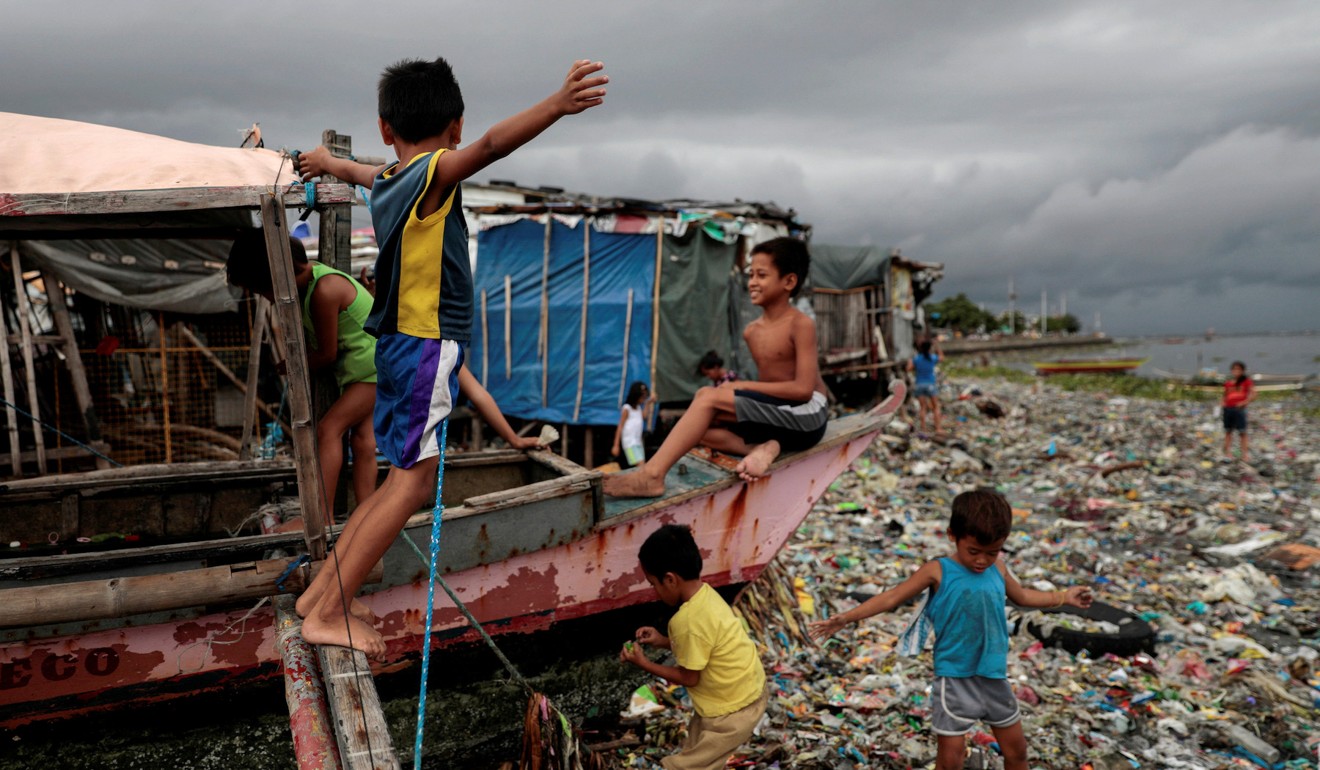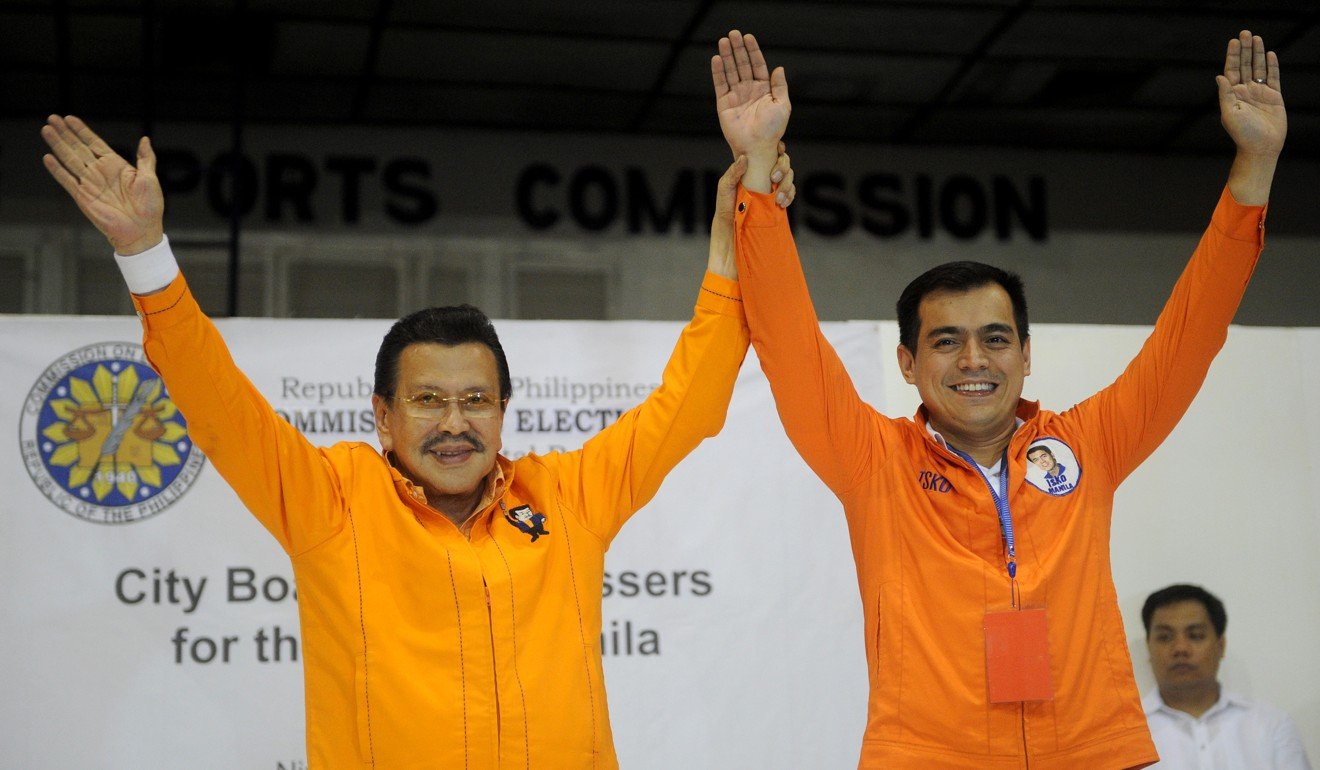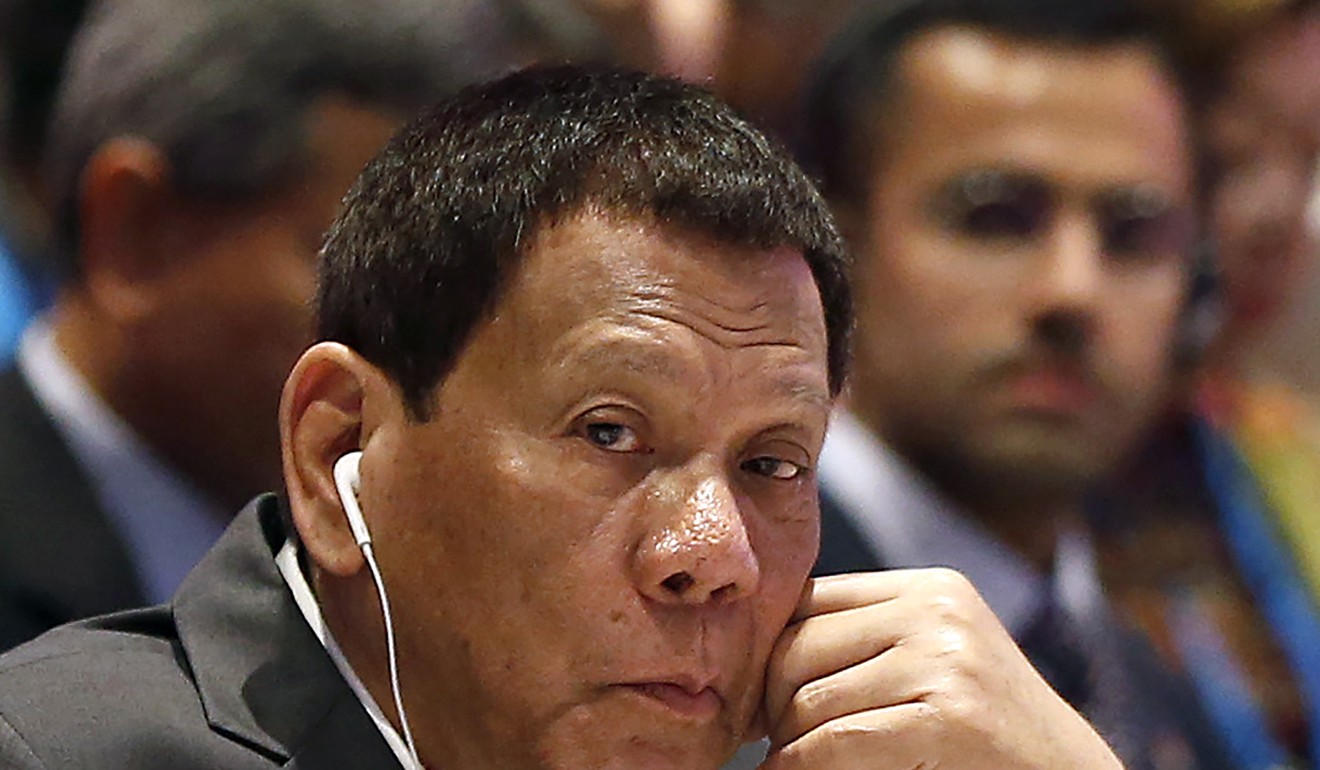
Is Manila’s mayor Isko Moreno the man to replace Rodrigo Duterte as president?
- After 100 days in office, Moreno has become a minor sensation in Philippine politics, having risen from the slums to become mayor of the capital
- Moreno has been mentioned as a possible presidential candidate for 2022, inviting comparisons with Duterte and also Indonesian President Joko Widodo
He was discovered in Tondo by a talent scout at a wake and made a career in film and television. However, he has not forgotten where he came from or the lessons of his upbringing.
“I grew up with criminals, with drug addicts,” he says. “I grew up on the street. I was given a hard life since the day I was born to understand our community today … God has so many ways of teaching you. You’ve seen where I live, and it was hell back then … I didn’t know what my purpose was and I thought, ‘Oh God, when will this end?’ But later only to find out, that I would be mayor. And now I understand the reason.”

And Tondo still remembers him – and loves him.
Gibo, a 50-year old port worker who says he grew up with Moreno in Tondo’s Moriones, jokes that he was there when the latter got his break. Although conditions in Moriones have not immediately improved, Gibo says the yorme, which is street slang for mayor, should maintain his course and avoid being ningas kugon, which means starting strong before fading.
In Philippine slums, meat scavenged from dumpsters feeds those short of meals and hope
After 100 days in office, Moreno has become a minor sensation in Philippine politics. His social media presence – on Facebook especially – is formidable. He has accumulated 1.8 million and counting likes and broadcast more than 263 Facebook Live events, ranging from official meetings to surprise inspections and even dental appointments.
“I go live to show the enforcement units that the government should still run while the people are asleep,” Moreno says. “It makes them feel that there is somebody there keeping the city safe … It gives lazy officials sleepless nights … I will not stop.”

Moreno remains committed to reviving Manila, particularly areas that have suffered acute urban decay. Binondo and Quiapo, formerly the heart of Manila’s Chinatown and the centre of the archipelago’s business life, are now clogged by traffic and boarded up. Ermita and Malate were once well-to-do neighbourhoods but are now scruffy and rundown, rife with prostitution and the grubbier aspects of tourism.
I grew up with criminals, with drug addicts. I grew up on the street
Furthermore, he’s pledged to address child malnutrition by reviving the Nutribun supplementary feeding programme in government primary schools.
“We are trying to provide education, open green space and vertical housing development,” Moreno says. “We’re also trying to address traffic, tourism and business. But the most important thing is the people. What comes first? Human capital.”
Is Duterte’s ‘drug tsar’ job offer to opposition leader Leni Robredo for real?
Moreno has also received praise for sacking underperforming officials.
“I have relieved nine police officers in the first three weeks [of my term], because they were not doing their jobs,” he says. “That’s why people are afraid for my safety. But so what? That’s what you call [an] occupational hazard. It’s part of the job.”

Since Duterte became president in 2016, his signature crackdown on drugs has attracted criticism from rights organisations due to the spate of extrajudicial killings. Moreno is not a fan of such extreme methods.
“A lot of drug-related criminals are being apprehended alive,” he says. “I respect human rights and the due process of law. We are firm in implementing things. I have to make sure the enforcement unit doesn’t abuse their authority in apprehending criminals.”
How Gretchen and Marjorie Barretto feud shocked Rodrigo Duterte and transfixed Filipinos
Already, Moreno is being mentioned as a possible candidate for the presidency in 2022. Although Duterte also made the transition from mayor to president, the more apt parallel may be with Indonesian President Joko Widodo, who was mayor of Surakarta from 2005-12.
All three men came from outside the national political elite and were known for their people-centric approaches to administration. Highlighting Widodo’s commitment to defending Indonesia’s sovereignty vis-à-vis China, Moreno notes: “That’s how you protect your country.”

